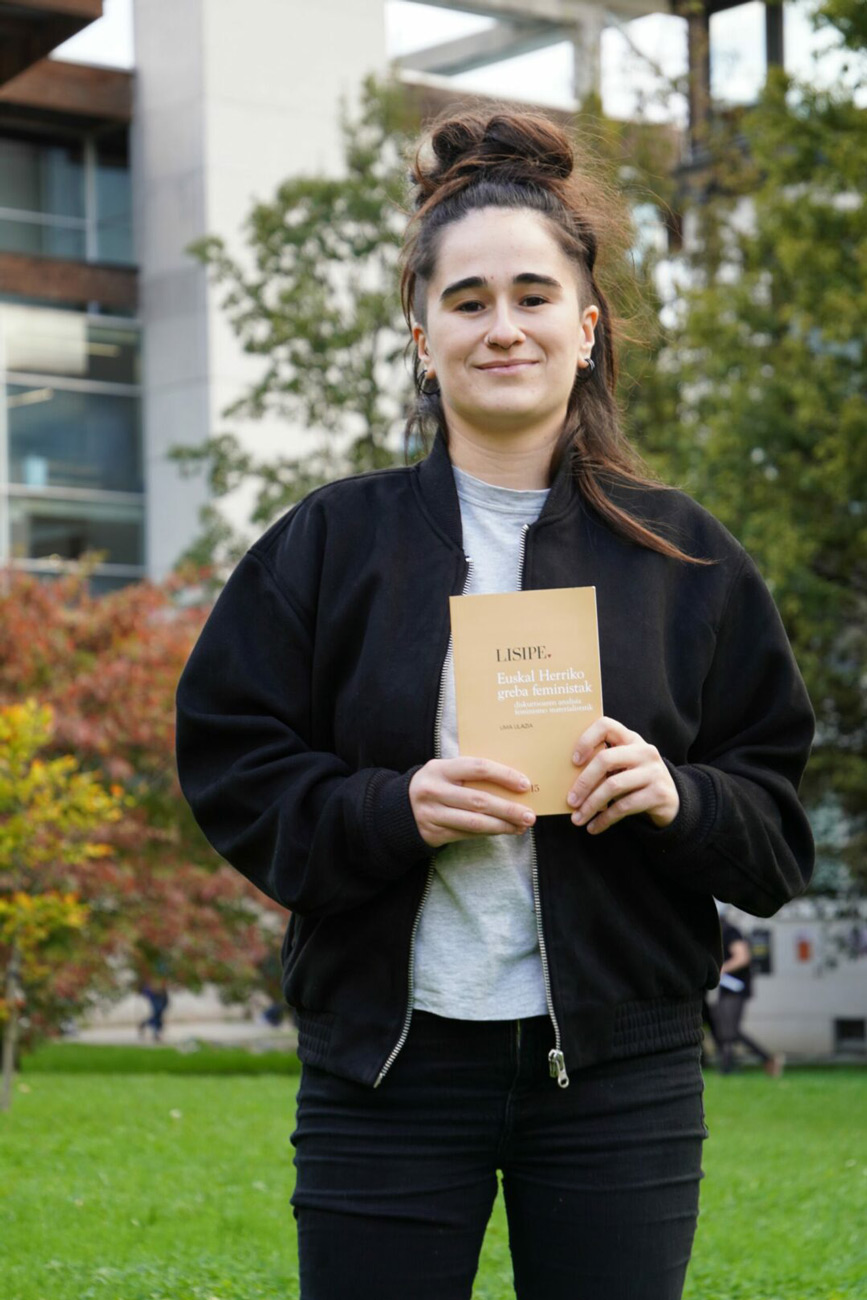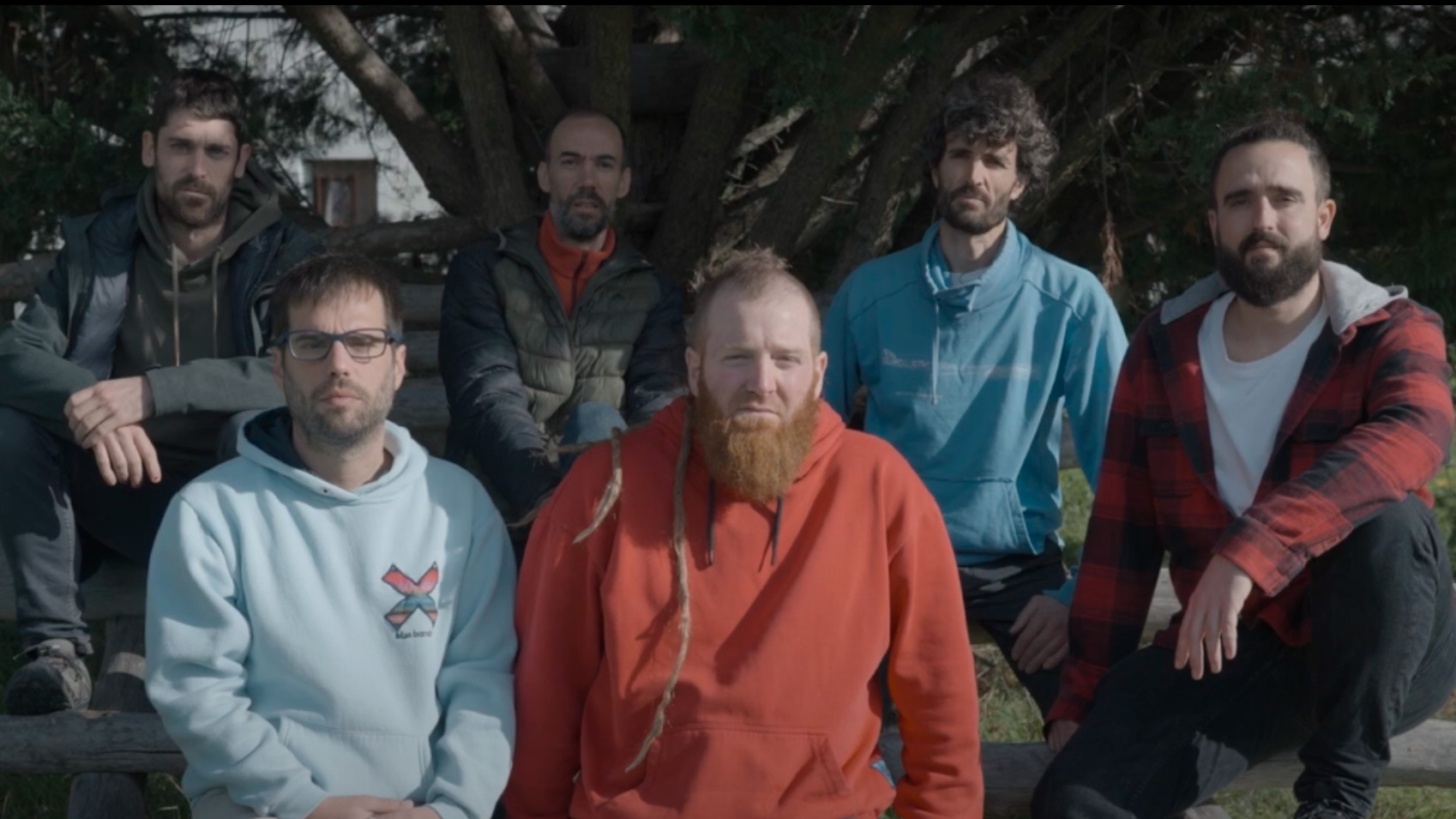They approach the way to embody the feminist movement from anti-racism.
- With the anti-racist feminist movement and Euskaldun as a goal, almost 600 women turned on the road to reach that point, within the framework of the VIII Congress of the Basque Country. Feminist Encounter. Bilgune Feminist offered a moment to reflect on the frameworks, formulas, discourses and imaginaries to place “the realities of the corners at the center”. Alliances between white, immigrant and racialized women, as well as the articulation of feminist and anti-racist agendas, have been considered fundamental.

Based on alliances; – alliances that must be built from the bottom up – learning from conflicts, recognizing each other, consciously working diversity and without concealing the imbalances between us”. This phrase deals with the way to reach the anti-racist and Euskaldun feminist movement of the Basque Country, which Bilgune Feminista set as its goal at the VIII Basque Basque Women’s Congress. At the closing conference of the meetings Naia Torrealdai and Alazne Beltrán de Lubiano.
They looked towards that path at the eighth meetings that took place on 12 December. Eighteen years of Bilgune Feminist “on the road made moving”, “gradually and with firm steps”. Open to decolonial criticism, new frameworks and formulas are also sought. In Joxean Artze Araquemos our corners, when the brumas are hidden from us, they imagined the famous letters as an exercise that must be carried individually and collectively: if the condition of walking is easily identifiable, because we hide that of the oppressor between the fogs. She researches and explores what was saved, looking ahead to the questions received by immigrant and racialized women who are part of the feminist movement: the racism that exists in you, in society and in institutions; the privileges that must be yours and the need for feminist alliances without mentorship.
The exercise is not easy, and Iratxe Retolaza, a member of the Emagin association of rapporteurs, warned of the need for extreme caution when composing the topic: “We have to rethink the ways in which Western thinking has built frivolities, including duplities. This modern subject who has created Westernization is based on homogeneity - whiteness, virility, upper-middle class, heterosexual, State-language. We have seen these variables on many occasions, but there is also a variable of European citizenship; we are there, and on fewer occasions we have addressed this and that is also very related to racism.” He also stressed the need to end the duality of the white Basque versus rationalized immigrant, because it is “much more complex”: “There are racialized Basques, racialized Basque citizens, racialized migrants and white migrants”. In other words, Retolaza sees the need to explore its positions in more detail when it comes to the primacy and completion of the scarcity of this vitality and homogenization that aims at Westernization – this note was extended by different rapporteurs.
Retolaza was present at the round table “Explore in spaces of encounter between languages, races and national oppression”, accompanied by the Salvadoran woman settled in Euskal Herria Ana Murcia, Andalusian lawyer Pastora Filigrana, a member of the network against discrimination against Roma people and Amaia Zufia, member of Bilgune Feminist, four feminist militants. Close to 600 women participated in the round table held in the streaming group or in the Hall of the Iratzar Foundation in Zuatzu. “At the heart of beliefs, limits and cutbacks, at a time when militancy is being confined, we have opted for collective debate,” Zufia said. Indeed, in the midst of the coronavirus pandemic, it was not a mass gathering of Orereta that was initially represented, but there was neither eviction nor isolation from the authorities: guaranteeing the health measures, they carried out the reflection collectively at the local level. This was appreciated by rapporteurs and assistants. “It has become clear that breaking the connections between us is not easy and that we are also stubborn; and so we will continue,” Zufia said.
"You have to help us to love Euskera by telling us the history of Euskera and this people, to help us lose our fear of Euskera" Ana Murcia
Dialogue and alliances between feminists are fundamental to all. “The monster that hits us is common, at least we need dialogue between us. I do not believe in the homogenization of practices and pains, but we need to refuse dialogue,” explains Filigrana. Murcia insisted that in order for this to be possible, spaces must be created. At a time when there is much talk about the decolonial perspective, a leap from words to practices must be made: “In the implementation of this discourse we have a real strategy, starting with our own, internalized and focusing on the trends we produce.” That is, recognizing the privileges and oppressive attitude of each one, taking a step back and sharing space. In this way, constructive and friendly spaces of alliance will be achieved. Murcia makes it clear: “If you despise or dominate the struggles of others, you weaken the struggle.”
Zufia joined this idea: “It is up to those of us who are in positions of greater privilege to take the first step, to facilitate spaces for safe dialogue, to leave space and not to fall into the logics of mentorship.” Bilgune Feminist also sees the need to develop strong networks at the intersection of the different struggles. In the words of Zufia, in order to achieve a bilateral dialogue within the feminist community it is essential to make a critical analysis of power, “beginning with us” –but– “without us/the others reinforcing the separation and without making false homogenization”. To carry out this change, he considers it essential to have mutual trust and to be clear that dialogue requires “a process of digestion”. Even though we are agitated, because we have to lead to the critical review of power: “We have to recognize that we are on that boundary of oppressors.”
Front, the common monster
“A common enemy, a common monster with a thousand faces, that will not hit us with the same violence and the same blow – it will not strike the Black or the Basque laborer in the same undocumented manner – but we have the same body of monsters up to date.” Filigree illustrated this statement with examples of structural persecution and discrimination suffered by Gypsies and Basques throughout history, “even today”. In the Spanish State, anyone who moves away from the identity “man, white, Catholic” will be oppressed, “in one way or another, more or less violently”, as he moves away from that identity. The ethnic and cultural persecutions suffered both as gypsies and as Euskaldunes were framed within that division.
But he made it clear that this division is not limited to ours: it is at the global level, it is the basis of a global capitalist and neoliberal economy. “By exploiting the workforce of some, the others are accumulating wealth permanently; and in addition, the workforce and the lives of all do not have the same value: it depends on the body you live or the territory you live.” A white, Western Catholic, heterosexual man, without disabilities has “an ideal position”, far from the blows of monster delivery, and as he moves away from that body and from that land, the blows multiply. Hence its indispensable intersectional approach: “It is not just a model of sharing work and wealth, it is a model that needs racial criteria and oppression from the patriarchate.” Moreover, from micro to macro, he said that these structural oppressions survive thanks to everyday discourses and imaginaries.
Retolaza also talked about the speeches, the ways of acting and the imaginary, explaining the importance of “wearing down” these three spheres to “break the father’s house.” On the one hand, the attrition of discourses, “a collection of intentions”, and on the other, the attrition of ways of acting, “because rethinking practices means rethinking the forms and procedures of relationship”, and, finally, the attrition of the imaginary, “because all these values are reproduced through symbols and visions of the world”. The latter was important because it is the most difficult in the background and also a “disturbing corner”. However, also from a decolonial point of view, it considers it essential to question, criticize, agitate and modify the culture: “Because by creating the imaginaries of the Basque we are building other things, and if we create white and, moreover, racist imaginaries, and that happens naturally and without agitation, it is understandable that some do not see themselves reflected in that imaginary of the Basque”. In illustrating the difficulties faced by the Basques in carrying out this urgent “erosion”, the comic book Black is Beltza, which has a “totally sexist and racist” imaginary, warned of having received very little criticism. “If we don’t question symbolic worlds, we won’t erode that chain of reproduction,” Retolaza explained.
Need to articulate agendas
Along the path of these alliances, Zufia pointed out that the feminist agenda and the anti-racist agenda must be articulated, and the reflection carried out within Bilgune Feminista listed several areas: Care, Euskera, immigration policies, borders and corporate powers, prison policy and the model of citizenship. Murcia also spoke of the meeting of two agendas from his experiences, following the idea that “there can be no decolonality without the end of the patriarchy”, presenting that the feminist struggle is carried out by indigenous women in the areas of Salvador. It's an interesting idea for anti-racist movements to also be linked to feminist struggle.
However, it became clear that the context of crisis and collapse will push us to: “We must organize ourselves in the face of the neoliberal wave that is going to gain strength, we will find a multitude of people hit by the monster and we will join in that front through dialogue – leaving aside the Olympics of oppressions and recognizing the oppressions of the other –” Filigree explained.
Euskaldunisation free of charge
The rapporteurs raised the issue of Euskera. “You must help us to love Euskera by telling us the history of Euskera and this people, to help us lose the fear we have of Euskera,” said Murcia. In the same vein Retolaza did, because he sees the importance of reactivating the awareness of the linguistic oppression that is weakening among the Basques and of publicizing this linguistic reality to those who are not vasco-speakers: “Communication roads and bridges must be built.” From Retolaza, the result of the linguistic policies launched since the 1980s is also that Euskera is a privilege in the linguistic imaginary – since Euskaldunisation is not free of charge and is linked to employability.
In addition to fighting against the Spanish Foreign Affairs Act, Murcia insisted that the Basques should also be involved in the fight for the Euskaldunization of immigrants. Both Zufia and Retolaza also demanded public and free means to Euskaldunizar through public institutions.
Concerning the field of languages, there have also recently been great debates among feminists: “It’s true that it’s hard for us to understand to our colleagues that Euskera is a practice of resistance to this capitalist colonial monster,” Zufia explained. But, saying that the implementation of the Basque country in the center is a “way back and forth”, he added: “For the other to feel part, we have to work on our clear, racist and stereotypical attitudes, and those who have not come to the Basque country must understand that the Basque Country is a political issue, which has centuries of oppression behind it.” That is, “empathy” on both sides.
Fueled by a thousand thoughts, each returned to his side with the passion to digest everything. Because reflection did not start or end in that meeting, as Bilgune Feminist stressed.
Goldatz talde feministak antolatua, ortziralean, urtarrilaren 3an, Jantzari dokumentala proiektatuko dute Beralandetan (17:30ean) eta biharamunean, urtarrilaren 4an, Berako bestetako tradizioak aztergai izanen dituzte Maggie Bullen antropologoarekin leku berean (10:30).
Ander Magallon, Mikel Irure eta Xabier Jauregi Metropoli Forala saioan egon dira maskulinitate berrien inguruan mintzatzen.
When the heteropatriarchal capitalist colonial system is questioned and fought, it attacks mercilessly. Using all the tools at your disposal to strengthen, strengthen and consolidate institutional power, media, justice, language, culture, violence...
In Switzerland, where every... [+]






















